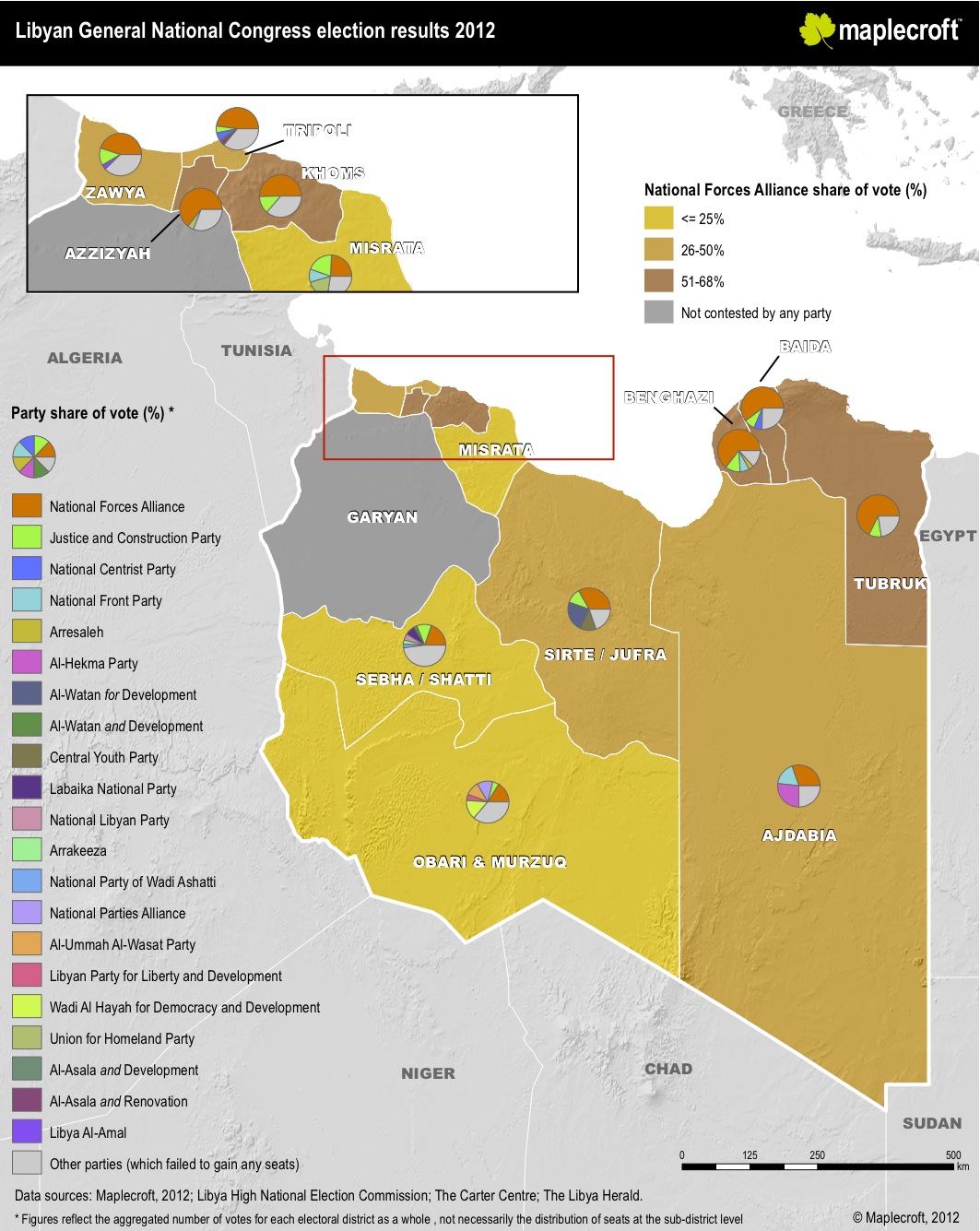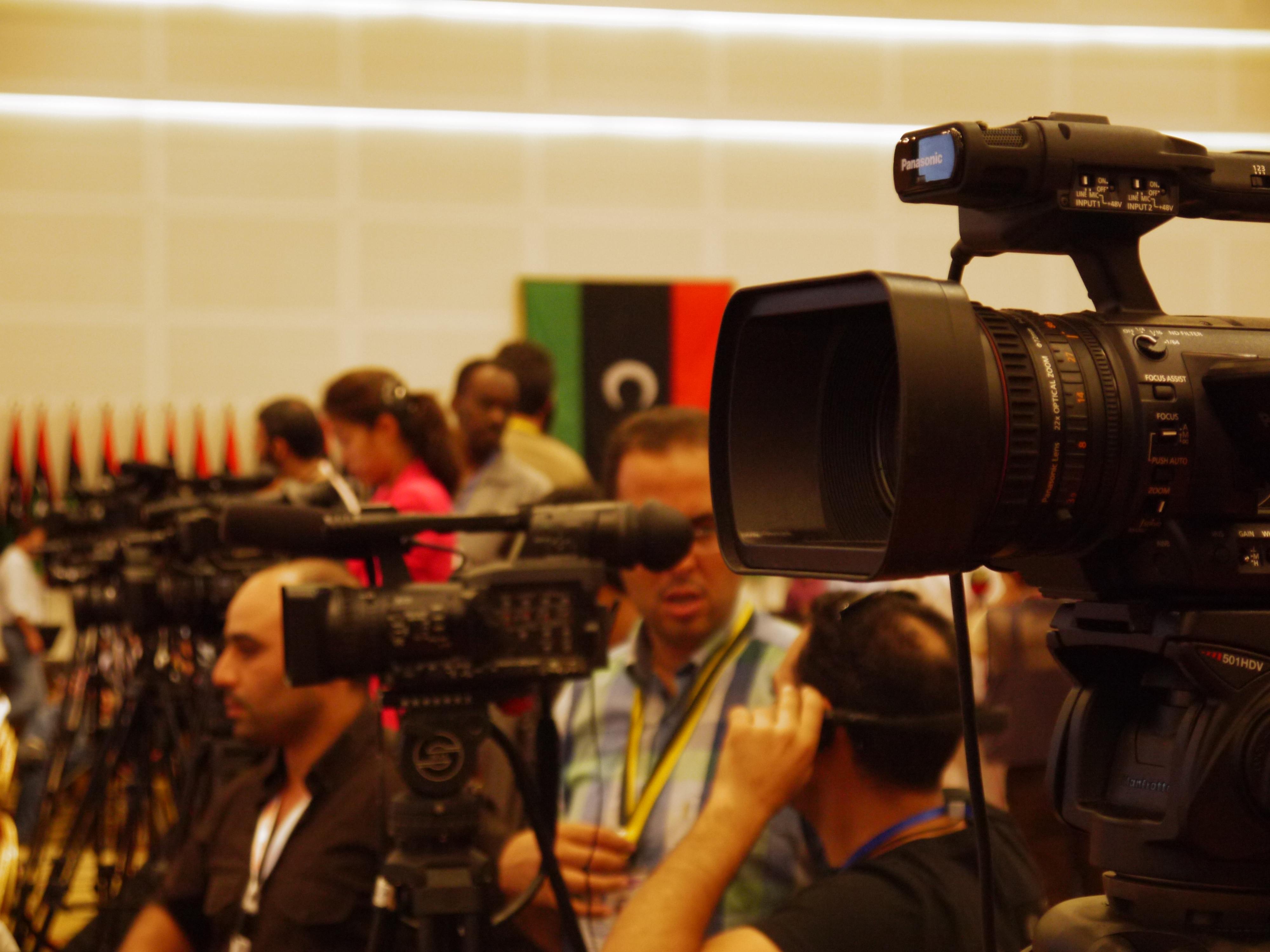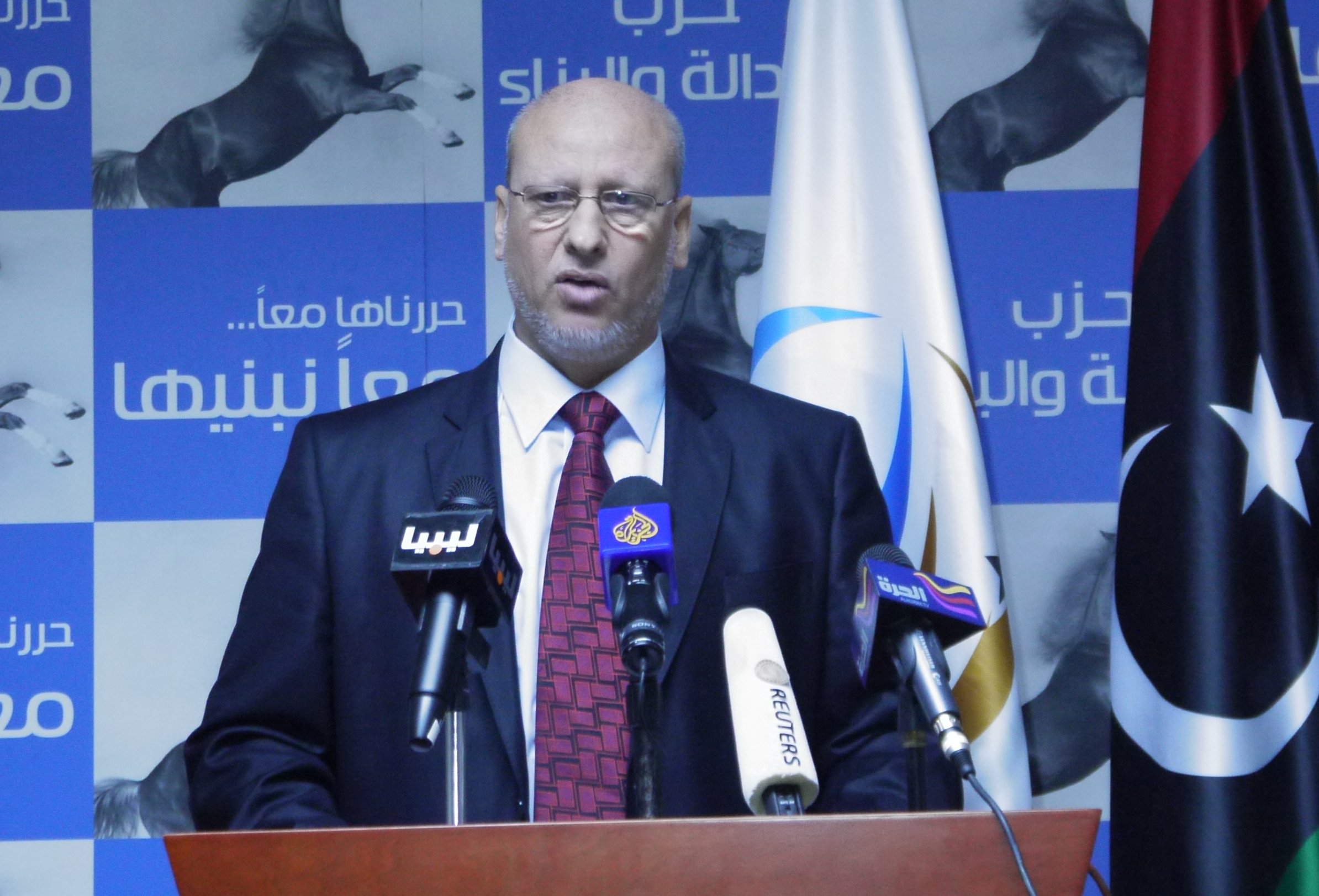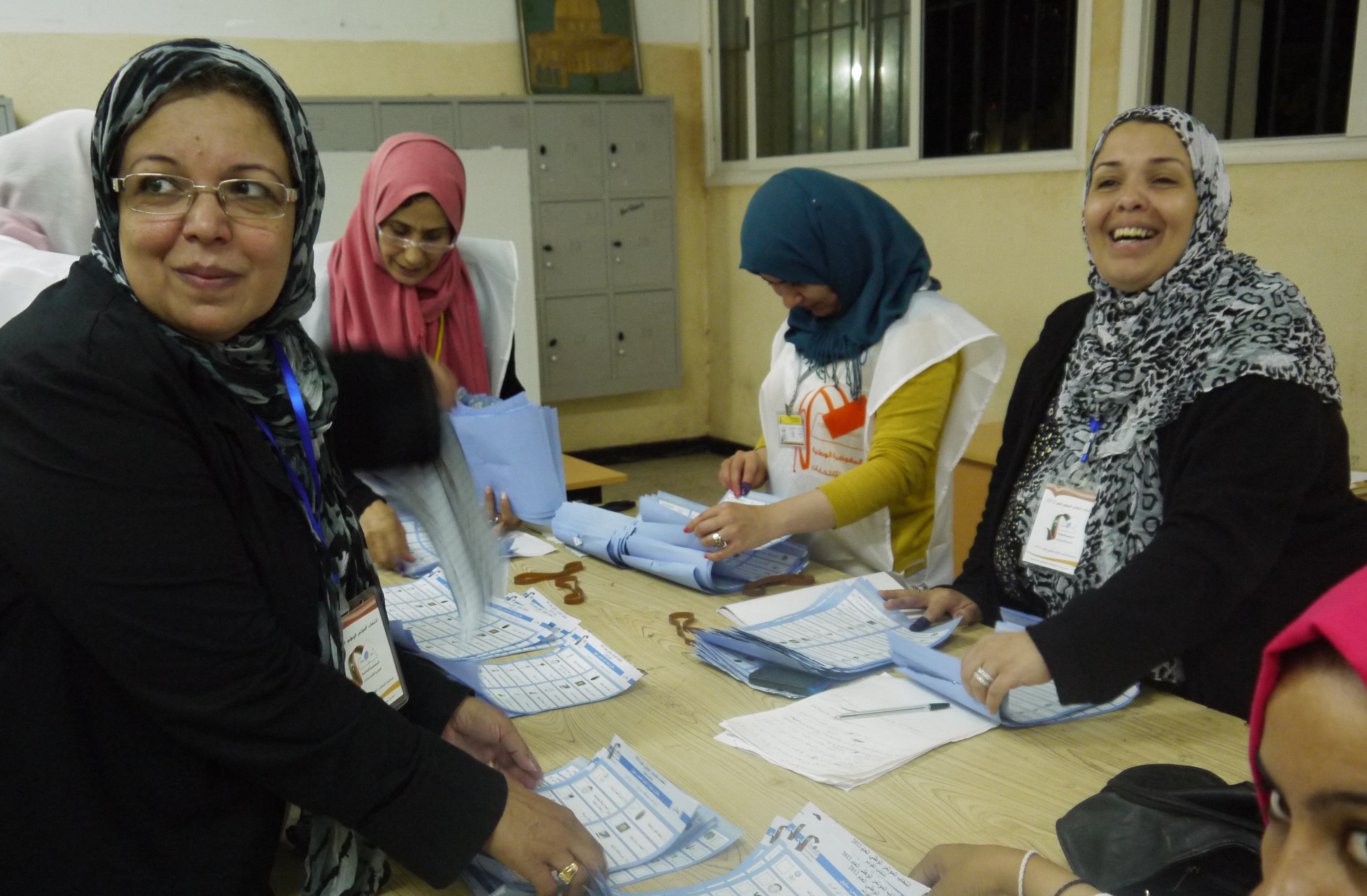By Sami Zaptia.
Tripoli, 15 July:
Speaking on Libya al-Ahrar Satellite TV channel late Friday night (13 July), Muhammad Magaraif, head of the . . .[restrict]National Front Party, sounded a very conciliatory tone in reaction to his party’s relatively poor showing in the National Congress elections of last week.
Not an Islamic party
Asked about his party’s orientation, Magaraif insisted that the National Front was ‘not an Islamist party’ but ‘a nationalist or patriotic party’.
Sources of revenue
With question marks being raised about some of the political parties’ sources of income, Magariaf insisted that his was a ‘financially moderate’ party. ’All our revenue is local and clean’, he stressed. ‘We did not have a huge election campaign compared to others. We don’t have our own television station like others’, he added.
Sharia law and the constitution
On the controversial question of whether Islamic sharia will be the source, the main source or one of the main sources of the constitution, Magariaf side stepped the wording and came up with a compromise wording of saying that Libya is an Islamic nation.
Federalism or de-centralisation
On Federalism and de-centralisation he insisted that ‘Federalism is not a swear word. It is an administrative choice. We tried it in the past (during the Kingdom era) and abandoned it in 1963 for a centralised state system’. ‘We did not have a chance to practice a good centralist state system as a result of the years of dictatorship that Libya lived under which suppressed regions’. ‘We need a debate to decide if we want a centralist, a reformed centralist or a Federalist system’.
‘I prefer a de-centralised system and not a Federalist system because I fear Federalism could be exploited by some for other purposes. I also oppose the Federalist’s timing and their methods for demanding Federalism’, alluding to the violence used by some Federalists in eastern Libya to make their political point.
In conclusion, Magariaf said that ‘at the end I go with the free choice of the Libyan people’, indicating his acceptance of the democratic process through elections as the mechanism for ascertaining the will of the Libyan people.
Who will form the next government?
This conciliatory tone adopted by Magariaf contrasts sharply with the reaction of Mohammed Sawan leader of the islamist Justice & Construction party. Sawan told Libya Herald that he would not enter into negotiations with Mahmoud Jibril’s National Forces Alliance despite the fact that they lead in the number of seats won by the party list system.
“He is like Qaddafi in his views on Sharia’, Sawan told Libya Herald in a non-conciliatory tone. In contrast, on Sunday, Jibril called for a grand coalition with the other parties in the hope of forming a government of national unity.
Moreover, rather than accepting the result of the elections (the rejection of islamist parties) as the reflection of the Libyan electorate’s will, at least for the party list system, Sawan insisted that voters who failed to properly understand his party’s Islamic programme and Islam itself.
“I believe those people are good Muslims but they do not understand Islam as they should. We want to re-educate people who don’t understand Islam. Our aim is to get the government to live by Islam, he insisted.
It is not clear cut that Jibril’s National Forces Alliance will have an overall majority when the individual candidates’ results are analyzed for the real standing of the so-called ‘independent’ candidates.
While the National Forces Alliance has the single-most majority of the party list vote, it can still lose overall control of the General National Congress if the many other lesser parties unite against it, and the ‘independents’ decide to form a coalition with Sawan’s Justice & Construction and other Islamist leaning parties.
For a profile of the National Front Party see: http://www.libyaherald.com/party-profile-the-national-front/
For the Libya Herald interview with Mohamed Sawan see: http://www.libyaherald.com/justice-likens-jibril-to-qaddafi/ [/restrict]






